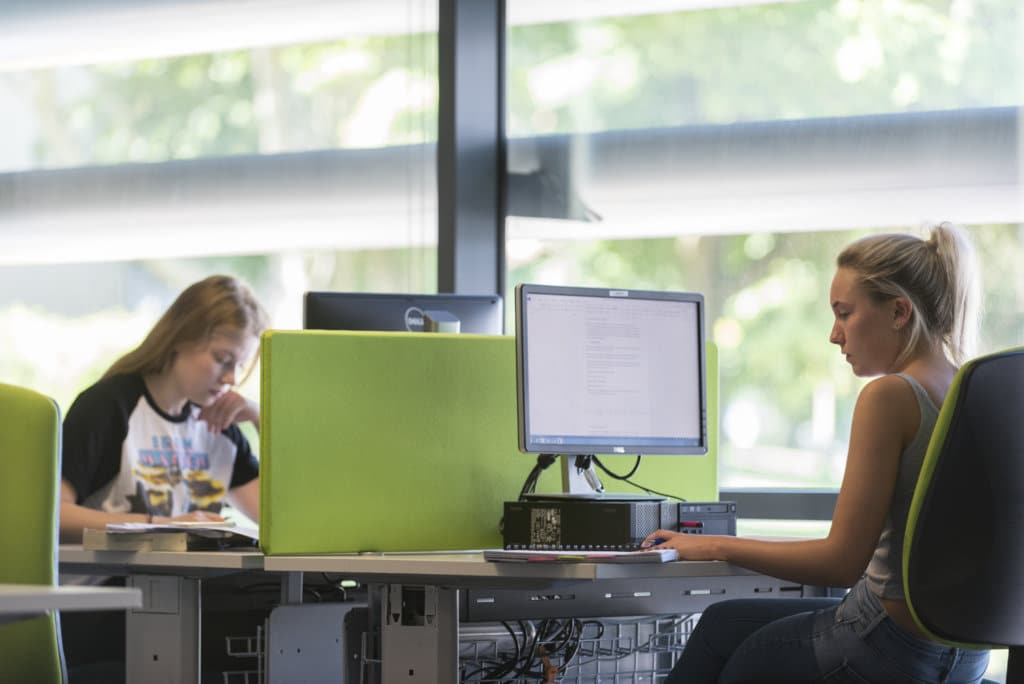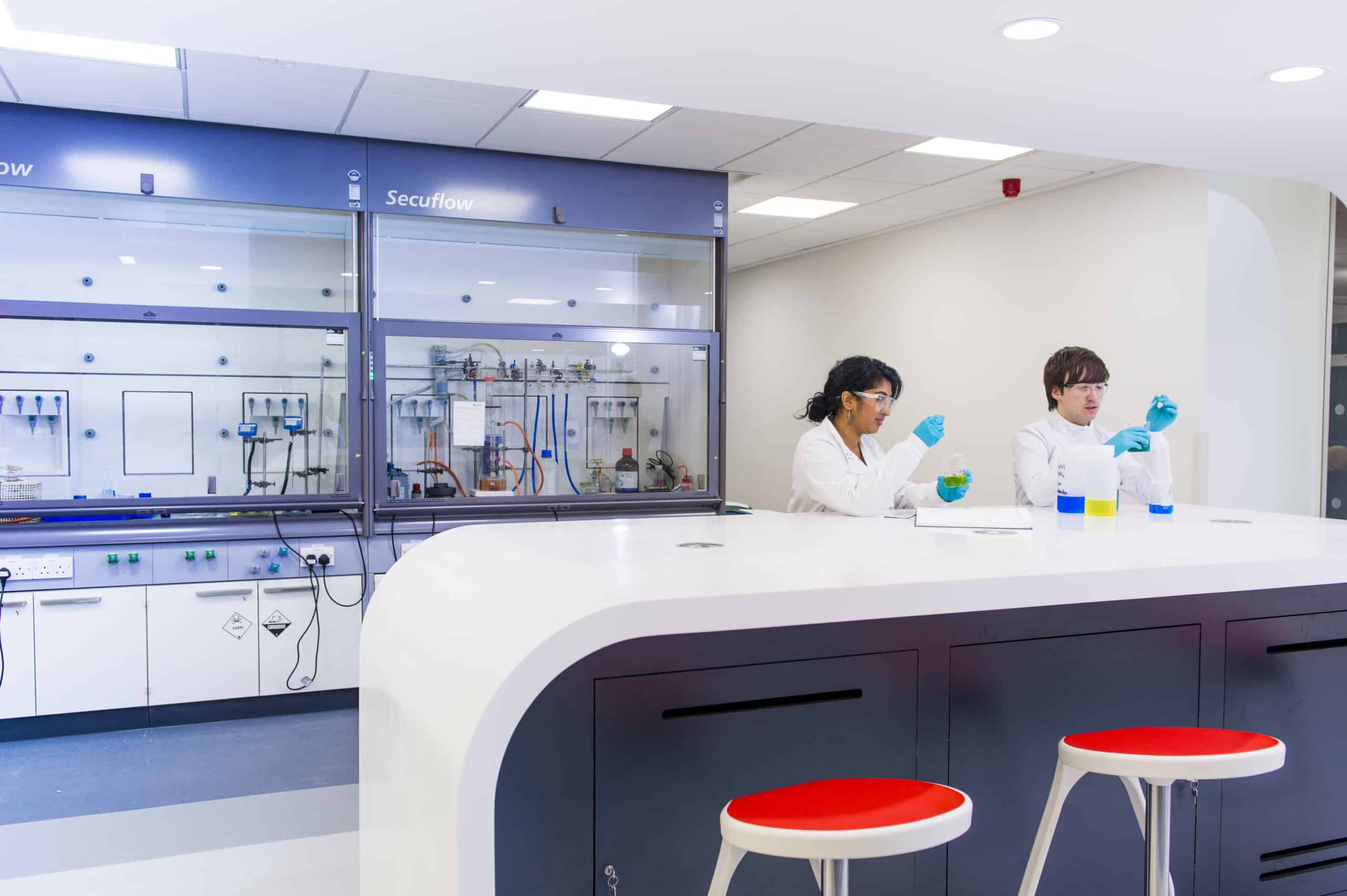Born and raised in East London, Huseyin B. Ahmet was always intrigued by the idea of turning raw materials into valuable products. He knew chemical engineering would cover all aspects of modern life and improve its quality. After exploring his options, Huseyin found what he was looking for at the School of Chemistry and Chemical Engineering at the University of Surrey.
Mathematics, science and cooking were his passions — and the MEng Chemical and Process Engineering with Placement Year let him explore each further while crafting a pathway to transform them towards a viable career. “Discussions surrounding the industry at the time — fracking, carbon capture utilisation and storage, and hydrogen economy — were certainly a driving force for me to enter the industry and help make a meaningful contribution,” he says.
Huseyin enjoyed learning the fundamentals of catalysis, reactor design and modelling. In the Separation Class 2, he deepened his appreciation for processes like distillation and its calculation.
Along the way, he was given the opportunity to work in the Reaction and Catalysis laboratory prior to applying for his placement year. “Due to this extremely valuable experience, I was accepted to work at W. R. Grace in Worms, Germany for an R&D role in catalysis,” he says.
Huseyin’s journey is typical of students at the School of Chemistry and Chemical Engineering at the University of Surrey. Many benefit, personally and professionally, from innovative teaching methods, personalised support, and experiential learning. For Loukia – Pantzechroula Merkouri, these were the building blocks for her to make the most of the Chemical and Petroleum Engineering BEng (Hons) or MEng.

Students have exceptional hands-on experience that helps them prepare for the future. Source: University of Surrey
During her placement year, while conducting research with a company that produces FCC (Fluid Catalytic Cracking) catalysts, she discovered she wanted to venture into research as a career. “This placement made me leave my comfort zone and live in another country, namely Germany,” she says. “I was assigned my first research project which involved working with catalysts. My professional training year was so successful that I was nominated for the PTY (Professional Training Year) Student of the Year Awards.”
After graduating, Loukia-Pantzechroula has continued her path by undertaking a PhD in the University of Surrey, working withDr. Melis S. Duyar finding solutions for problems within the energy sector. “I strongly believe that after all the skills and knowledge that I obtained at the University of Surrey, I will be able to achieve my lifelong dreams because I am now tailor-made for this career path.”
Graduates have plenty to credit the school for. Kathryn Lawson-Wood is a marketing specialist at PerkinElmer, a provider of end-to-end solutions that help scientists, researchers and clinicians discover new, more personalised therapies and make better, faster diagnoses. She completed her placement year there while studying for the Chemistry BSc (Hons) or MChem.
“During my final year of university, our thesis was based on a year-long laboratory-based research project and I was able to publish my work ‘Investigation of the uptake of molybdenum by plants from Argentinean groundwater’ in the Journal of Environmental Science and Pollution Research with the help of two of my lecturers,” she says. “My university project supervisor provided guidance and support throughout the year, and always made time for me. In addition, there were several PhD students who also provided me with guidance throughout the year, from setting up experiments to using all the available equipments.”
Seeing her competence and confidence during her placement year, PerkinElmer offered Kathryn a graduate-level technical applications scientist position. “The resulting graduate job offer would not have been possible without this Professional Training Placement, and I would thoroughly recommend to all students to take advantage of this opportunity to expand their skill set and acquire that edge when applying for graduate positions,” she says.

There are over 15,000 students, including international students, at the University of Surrey. Source: University of Surrey
Kathryn would know. She’s been with PerkinElmer for six years and has recently transitioned to a career in marketing in the company. “This is broadening my science-based skill set by combining my love for creativity and my scientific knowledge into my work. In my new role, I am responsible for the generation of marketing collateral to support new and existing life science products (instruments, reagents, consumables, and software) which help researchers and life science companies advance the discovery of drugs and therapeutics,” she says.
Her expansion is a testament to the transferable skills a University of Surrey degree often equips graduates with. They even have modules called “Transferable Skills” to make sure this is indeed a priority. “Whilst my role transitioned more heavily within the field of biology, I still utilise key chemistry concepts from a variety of my courses within my degree,” she says. “Three skills I developed at Surrey that I am still using today include data analysis, critical thinking, and presentation skills, which Surrey provided excellent guidance on.”
Follow University of Surrey on Facebook, Twitter, LinkedIn, Instagram, TikTok, and YouTube











